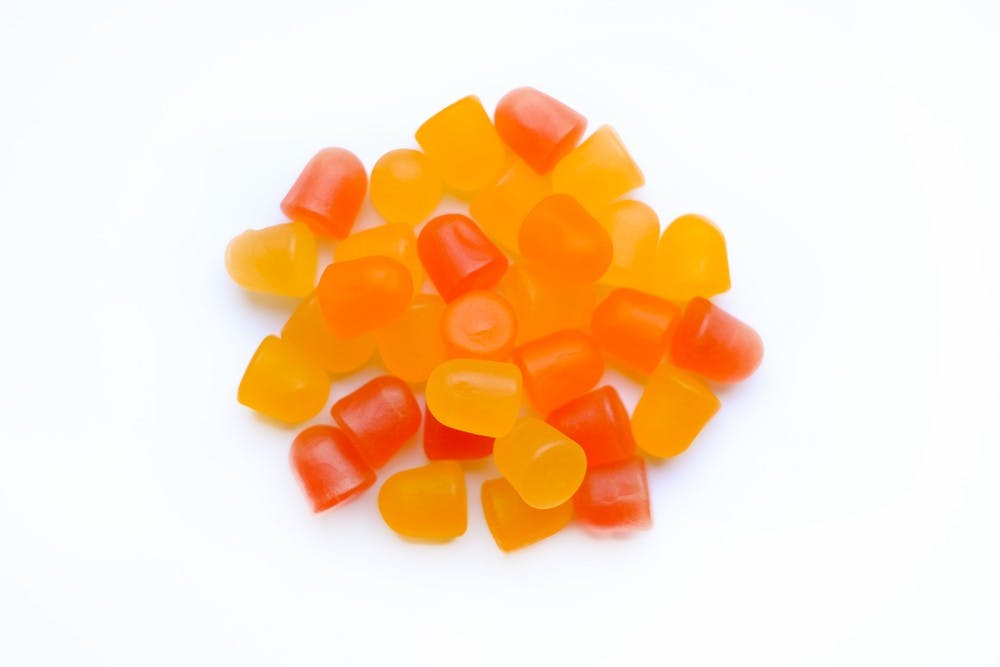It’s normal for some children to go through a phase of picky eating. You can sometimes be left wondering if your child is getting enough essential vitamins and minerals if they aren’t polishing off a full plate at every meal. If you dread sitting down to eat with your child because it always turns into a battle of wills over food, they probably feel the same way.
The good news is that medical science knows a lot about what makes a healthy, well-developed child, and that includes what vitamins they need. While the best way to get nutrients is through a balanced diet of vegetables, fruit, grains, dairy, and meat, a terrific alternative to repeated struggles over food is to try toddler multivitamins.
Multivitamins can help close the nutritional gap during that vital first 1000 days of your child’s life. Vitamins
and minerals are crucial during those first three years and your child. Vitamin deficiencies often have outward symptoms. If the problem isn’t visible, though, your child may not be able to express themselves if they think something is wrong. Toddler multivitamins can give you peace of mind if you’re in doubt.
Let’s take a look at everything you need to know about children’s vitamins so you can make an informed decision for your family.
Vitamins and Minerals Everywhere
So, just what are vitamins and minerals? We’ve heard about them since childhood and it feels like they’re part of every conversation about children’s health. Let’s take the mystery out of vitamins and minerals.
Simply put, vitamins and minerals are considered “micronutrients” that your body needs to be able to function normally. Our bodies cannot make their own micronutrients, so we need to get them from an outside source.
● Vitamins
These are organic substances that are either fat-soluble or water-soluble. Fat-soluble vitamins dissolve in fat and can build up in the body. Water-soluble vitamins need to be dissolved first to be used and are not stored. Excess water-soluble vitamins are eliminated from the body through urine.
● Minerals
These are inorganic elements that are present in water and soil. Plants and animals need them, just like we do. When we eat plants or meat, we’re absorbing the minerals they’ve already absorbed.
We need these vitamins and minerals to survive, but only in tiny amounts. If there are too many or too few nutrients, your child’s health can be impacted. Toddler multivitamins are one way of making sure your child is getting the right doses.
Vitamins:
- Vitamin A supports immune function, eyesight, skin, development, and growth
- Vitamin B1 (thiamin), B2 (riboflavin), and B3 (niacin) are necessary to get energy from food
- Vitamin B6 (pyridoxine) helps produce red blood cells and supports brain function
- Vitamin B12 (cobalamin) also helps with producing red blood cells; it also helps with growth
- Vitamin C (ascorbic acid) helps absorb iron from food; it also helps fight infections, produces collagen, and helps with teeth, gums, and bones
- Vitamin D is a vitamin our bodies are able to produce from direct sunlight; it’s needed to absorb calcium, which supports strong, healthy bones
- Vitamin E supports a healthy immune system, healthy skin, and eyes
- Vitamin K helps your blood clot when you have a cut; healthy gut bacteria also produce vitamin K
- Folate (folic acid) is important for absorbing protein and helps form new blood cells
Minerals:
- Calcium is essential for strong bones and teeth; 99% of the calcium in your body is in your bones
- Iodine is needed for normal growth and tissue development; it also helps with how your cells make energy and use oxygen
- Iron is required for red blood cell production and carrying oxygen around the body; it’s also important for brain function
- Zinc is necessary for a healthy immune system, growth, and wound healing
- Also important are copper, magnesium, phosphorus, chromium, and manganese
Too Much of a Good Thing
It’s entirely possible to give your child too many vitamins; it can lead to toxicity, particularly with fat-soluble vitamins that build up in the body. Signs of a vitamin overdose include:
- Confusion
- Irritability
- Convulsions
- Mental changes
- Fainting
- Headache
- Fatigue
With broad symptoms like these, getting the opinion of your pediatrician is important, as some of these symptoms can also indicate a vitamin deficiency.
Toddler multivitamins frequently come in gummy forms, which can lead your child to misunderstand that they are not medicine, but candy. Keep them out of your child’s reach and be clear that they’re not treats. If you know that your child has taken more vitamins than the recommended amount, calling a poison control center or your pediatrician can help get things back under control.
Doctor’s Orders
It’s always a good idea to check with your pediatrician when giving toddler multivitamins to your child. They can advise and alert you to any dangerous drug interactions.


